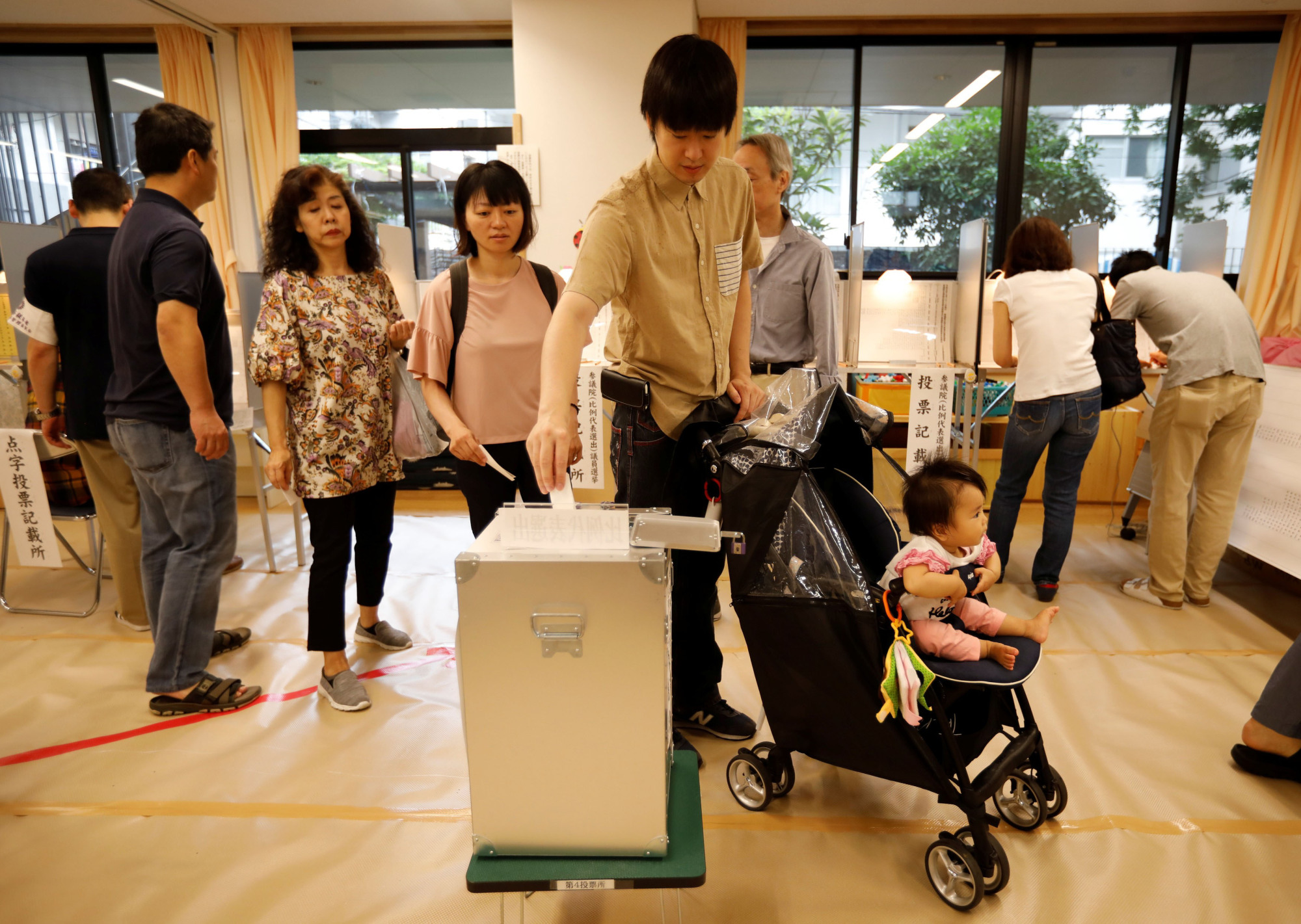Prime Minister Shinzo Abe's ruling Liberal Democratic Party has won a majority of the seats contested in Sunday's Upper House election along with its coalition ally Komeito. It is a sign that voters used the litmus of the stability that Abe has brought to Japan in terms of his stewardship in the economic, security and diplomatic spheres as they made their decision at the voting booth. It is also a sign of a paucity in real political alternatives as well as growing apathy among the electorate.
Compared to when Abe returned to the government's helm in December 2012, Japan's economy is growing moderately, unemployment is at record lows and wages are moderately increasing as firms must compete for new employees. Under womenomics, we see increased participation of women in the workplace and the promotion of corporate governance has enhanced transparency in the boardrooms. Immigration reform implemented this year will allow for up to some 345,000 migrant workers to come to Japan in the coming five years to work in targeted industries.
Credit can in part be given to policies executed by the Abe administration, but also to the twin parallels of a graying population and a low fertility rate. Both have contributed to record low unemployment and the increased number of women in the workforce. Japan's finite and dwindling labor supply has compelled employers to increase wages marginally, to create more avenues to hire and retain more women in the workforce, and to adopt policies to address the dearth of labor in blue collar and low-skilled service sector jobs.



















With your current subscription plan you can comment on stories. However, before writing your first comment, please create a display name in the Profile section of your subscriber account page.